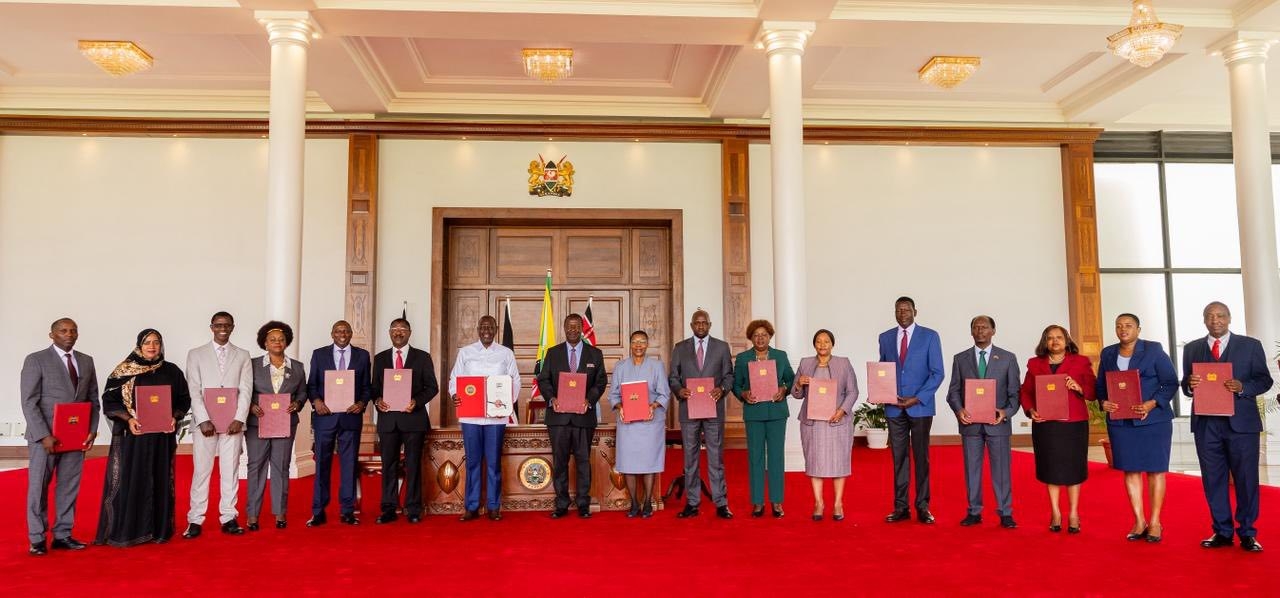Recent figures published by Kenya's Dairy Board have revealed a startling decline in milk consumption among Kenyan households.
From a peak of more than 62 million litres in January, the numbers have plummeted to 52.19 million litres in March. This downward trend has been primarily attributed to the prolonged drought that has plagued the nation.
While the arrival of the long-awaited rainy season has spurred a slight increase in milk production and consumption, Kenyan households continue to grapple with reduced purchasing power due to high fuel prices and the historically high cost of staples resulting from consecutive poor harvests.
The scarcity of milk supply is not only impacting the formal dairy sector, but also creating challenges for the informal sector, which plays a vital role in meeting the country's milk demand.
The informal milk market, which plays a vital role in distributing around 60 to 70 per cent of Kenya's milk, heavily relies on small kiosk operators.
These vendors serve as a crucial source of milk for low-income families who cannot afford commercially-processed packaged milk.
However, they face significant challenges in ensuring milk safety, such as milk adulteration, poor hygiene practices and limited knowledge of milk evaluation.
"The demand for high value products, including milk products, continue to grow [but] the informal markets for food products face significant challenges in complying with food quality and safety requirements," KDB managing director Margaret Kibogy said on Friday, June 23.
"The National Dairy Master Plan seeks to transform the informal milk trade through appropriate technologies, training, market linkages, consumer education and awareness creation and, of course, certification programmes."
A noteworthy initiative called MoreMilk is providing evidence that investing in vendor professionalisation and providing them with business literacy skills could potentially transform the country’s informal milk market.
One individual who has experienced the positive impact of this initiative is Kevin Kibet, owner of a dairy shop in Eldoret.
Despite facing a decline in milk supply — previously he sold 90 litres of milk daily but now only sells 60 litres —Kibet has managed to maintain a loyal customer base, building his reputation as a consistent provider of safe and high-quality milk.
His success can be attributed, at least in part, to the invaluable food safety practices and business management skills he acquired through the training programme that reached more than 200 vendors like him.
Even in the midst of a challenging economic environment, these vendors are reaping the rewards of their commitment to delivering safe quality milk, thus fostering a sense of trust and reliability within their local communities.
Another example of the impact of the MoreMilk project is Loice Jemutai, from the Kapseret region in Eldoret. Customer complaints about spoiled milk used to be common occurrence.
It was after she participated in the MoreMilk training that Jemutai made a startling discovery—her milk suppliers were consistently diluting the milk.
Jemutai is now implementing simple and affordable practices to ensure the quality of her milk, using sensory tests such as taste, smell and sight, while also utilising a lactometer tool to measure milk density.
Additionally, she performs the 'clot-on-boiling' test to check for sourness, holding a spoonful of milk over a candle flame.
These measures have eliminated complaints, and Jemutai now also regularly visits her suppliers to ensure strict adherence to hygiene practices, such as storing and transporting milk in clean steel containers.
"This project shows that coaching and providing milk vendors with user-friendly and dependable food safety tools can open doors to professional advancement," food safety expert Silvia Alonso of the International Livestock Research Institute said.
"By incorporating good hygiene practices alongside essential business skills, we can elevate the safety and profitability of the informal milk sector in the country."
According to a recent report by ILRI on tackling food safety risks in developing countries, informal sectors and markets play a significant role in supplying food to consumers, particularly in low- and middle-income countries' urban areas.
The report emphasises the need for a multifaceted approach to support informal milk markets, combining training, municipal engagement and collaboration.
By implementing these strategies, Kenya can make significant strides towards establishing a safer, sustainable and inclusive milk market that benefits both vendors and consumers.












